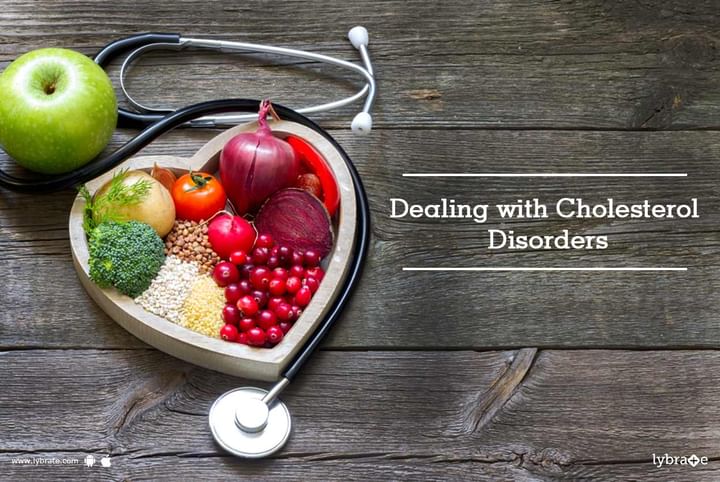Dealing with Cholesterol Disorders
Most may not be aware of the fact that the human body requires cholesterol for normal functioning. Though normal levels of cholesterol are essential for proper functioning, any fluctuations in these levels can lead to disorders like hyperlipidemia and hypolipidemia.
Cholesterol, a soft, fat-like substance helps in building new cells and secreting hormones. While 80% of the cholesterol is produced by the liver, 20% is obtained from the food you eat. The cholesterol sticks to a protein called the lipoprotein and along with it travels through the bloodstream. Among these lipoproteins, HDL (High-Density Lipoprotein) is good for the body, and the other four namely LDL (Low-Density Lipoprotein), VLDL (Very Low-Density Lipoprotein), and Triglycerides are bad for your body.
Complications
While high blood cholesterol can lead to complications such as heart attack or stroke, low blood cholesterol would indicate the presence of an underlying condition and in either case, proper treatment and management are essential.
Managing high cholesterol
- Diet and exercise: The first line of treatment begins with an active lifestyle and a healthy diet. Choosing healthier fats, avoiding trans fats, limiting dietary cholesterol, including whole grains, vegetables, and fruits, and limiting alcohol consumption along with adequate exercise should reduce the levels without medication.
- Medication: If the cholesterol levels do not reduce despite m lifestyle changes, the physician will prescribe a combination of medications, considering several factors such as the individual’s age, present health condition, and the side effects of the medication. The common drugs used to reduce high cholesterol are statins, bile-acid-binding resins, cholesterol absorption inhibitors, and injectable medications.
- Managing low cholesterol: In the case of being diagnosed with low cholesterol, the treatment focus would be handling the underlying condition.
Irrespective of the type of cholesterol disorder, it is essential to follow the doctor’s advice in both cases to avoid the risk associated and lead a healthy life.
In case you have a concern or query you can always consult an expert & get answers to your questions!



+1.svg)
